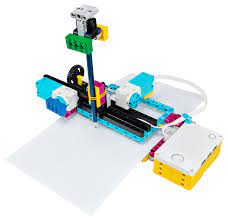Pros and Cons of Working While in College

Being a working student is not an easy thing to do. In fact, such a choice may have its benefits as well as some downsides. Students should consider significant pros and cons before making a decision to work while in college. Here’s what you should know before taking any job while still studying.
Pros: You gain working experience
Students can get plenty of valuable work experience while still in college. Having such an opportunity at such a young age is truly precious. It means you can be ahead of all other graduates after college. You already have some skills to brag about and experience to share. Overall, working while in college can seriously save you some time when building a career. You will have a chance to do all the entry-level jobs while getting a degree. Hence, later, you will move on to more serious positions while your peers will be only getting started.
In addition, it’s highly recommended to get some work experience in your chosen field. Thus, you will see it firsthand whether you even like the career you are striving for or not. So, you may adjust your plans and even build new career aspirations by exploring different fields and trying various jobs. After all, what is a better time to do so than in college?
Cons: You get distracted from studies
Keeping your focus on two things at once is never easy. That is why working while studying can be bad for your academic performance. For one, you will simply have less time to study and work on your assignments than most of your peers. Yet, the expectations from you will remain the same. So, you’ll have to hustle more to keep up with all the good work you should do.
Next, you may simply be more interested in working, which can also interfere with your study progress. No matter how fun, important, or promising your job is at the moment, you are still in college. Hence, you should focus on getting your degree first. Getting too distracted by other things will not help you graduate with the results you could have hoped for. Thus, making your priorities right and choosing studies overwork can be a challenge for young people.
Pros: You build up your resume
Getting a higher education is important. However, it’s not enough to get the job of your dreams right away. Your future employees will also look at your resume. Thus, they want to know what else you can do. Having at least a few lines in your resume will put the HR team at ease. These lines will show that you already have work experience, know how to be responsible, work in a team, comply with the basic office rules, etc.
You don’t even have to have work experience in the same field as your future career. Not having an empty CV document is enough to land a good job. In addition, you will feel more confident in applying for different job postings. You have something to show to your interviewers. So you don’t have to prove you are qualified for the job. Your resume can tell it for you.
Cons: Time
The disadvantage of doing both, working and studying lies in time. You won’t have much of it. Studies alone take up most of a student’s day. Add 20-40 working hours per week and you won’t have enough time to meet all your needs and wants. Of course, by doing both, a student will have to adjust fast. Time management and organizational skills will skyrocket. Otherwise, they won’t be able to do it.
However, knowing how to distribute time doesn’t mean you will have much of it. You’ll still struggle to fit everything you want into your schedule. You’ll also have to sacrifice certain things. Fortunately, you won’t have to sacrifice your studies, considering all the professional help you can get online. Thus, you can simply read eduguide reviews by ScamFighter and choose the best writers to your liking. At least, such writing help will release some pressure from your already busy schedule.
In addition, lack of time will eventually lead to poor social life and potential burnout. Young people should be very careful with how they treat their mental health. After all, most students don’t know yet how to take care of themselves to the best of their abilities. Hence, they are most prone to mental disorders and burnout at such an age.
Pros: Networking
Think about all those work connections you can make while picking a job young. After all, your business relationships can do a lot for you, especially at the beginning of your career. So, by choosing to work while in college, you also choose to extend your social circle and make potentially useful work connections.
You won’t be able to build such a network by only staying on campus all the time. Thus, going to work, particularly in the field of your interest, will surely pay off in the future. You will be able to learn about new job openings, bring impressive recommendation letters, or simply have mentors to help you out in difficult situations.





